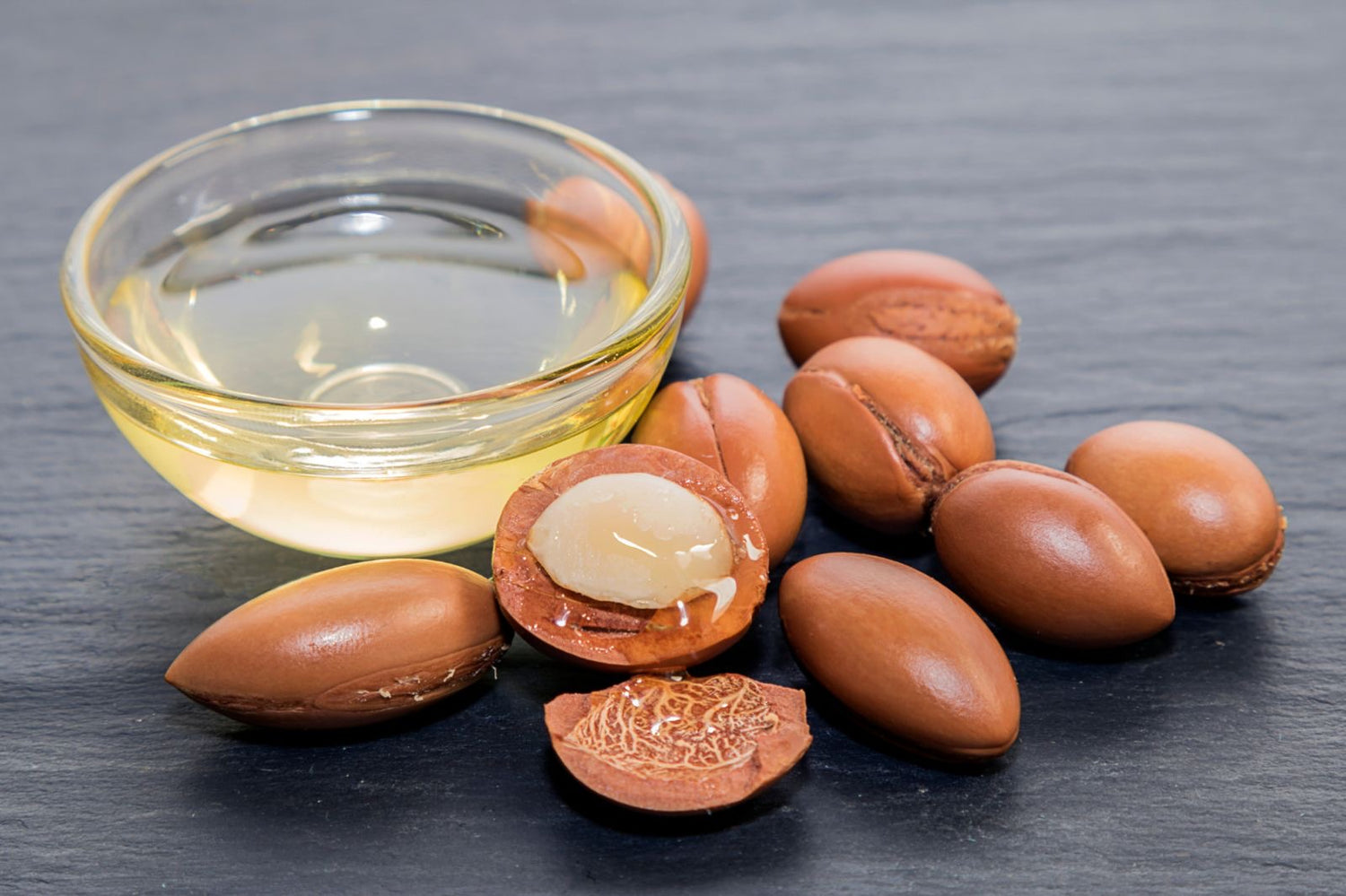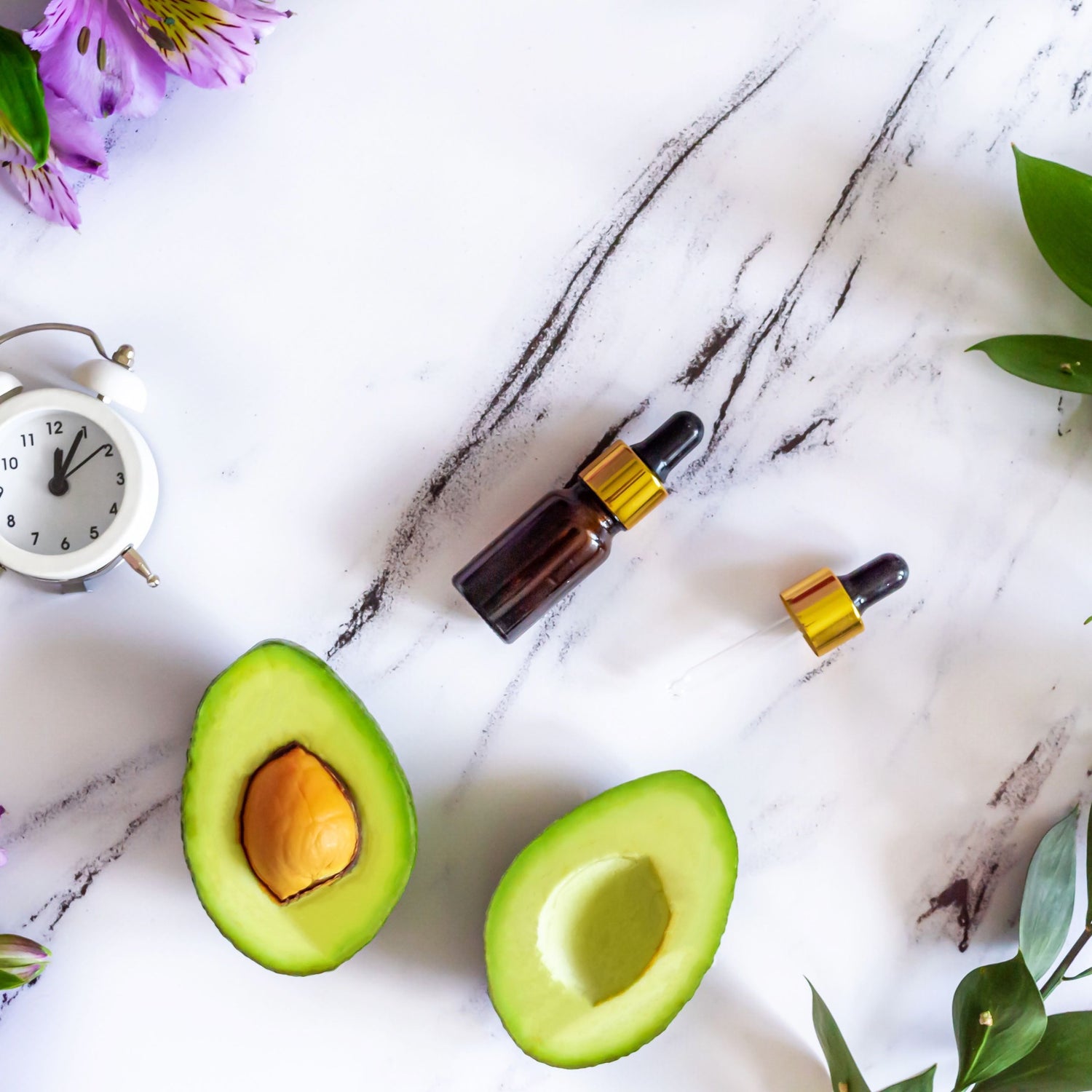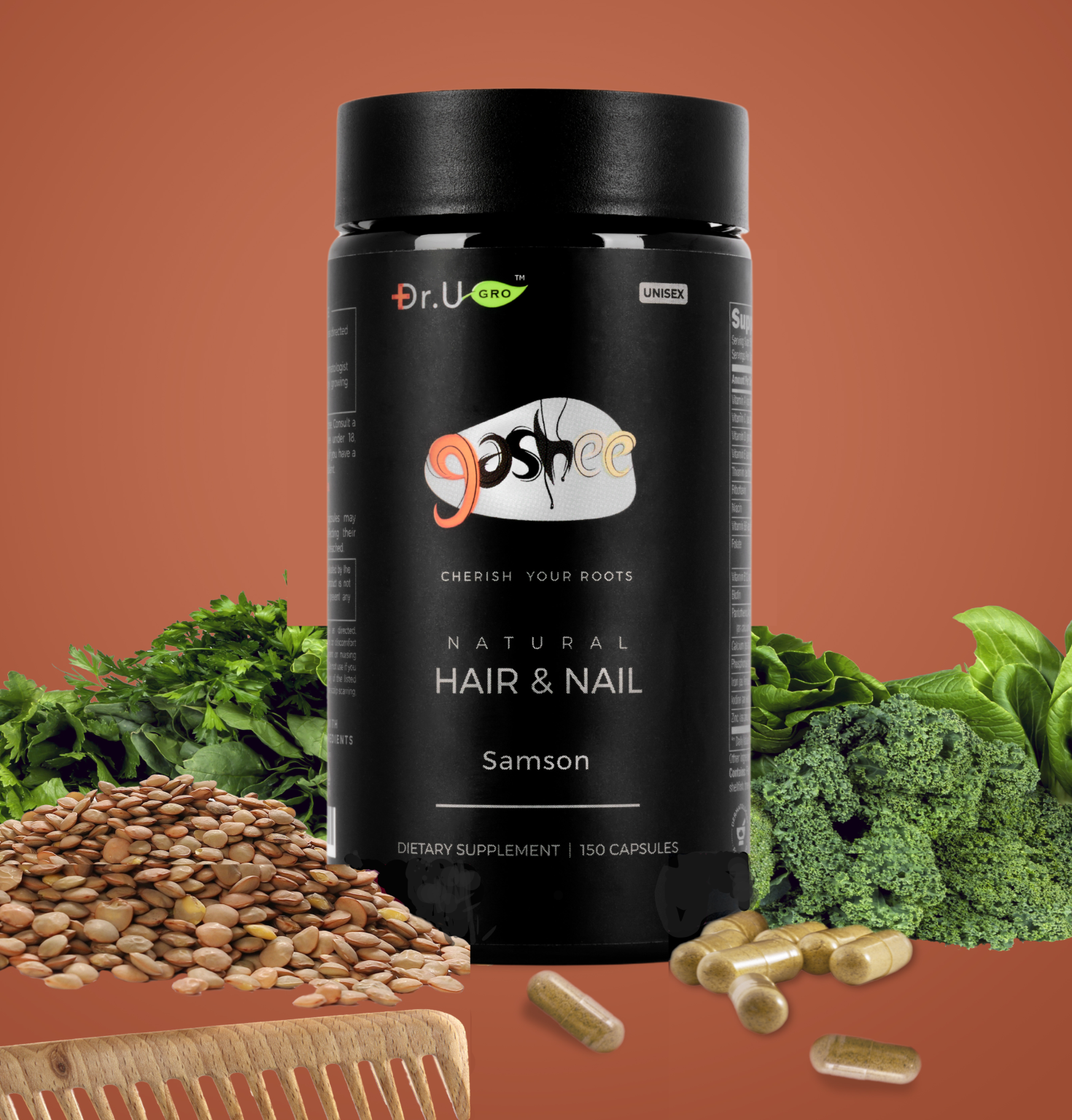What is Cedarwood Oil?
Cedarwood oil is derived from pine, cypress, and coniferous trees through steam distillation processes. Like many botanical extracts used for essential oils, the essence of cedar offers a wide range of healing and medicinal benefits. The modern research literature provides support for the therapeutic value of cedarwood oil for hair and scalp health.

The ancient Egyptians used cedarwood oil to formulate embalming fluid for their mummification processes. They were well aware of the antifungal, antibacterial, and insect-repelling properties of the cedarwood extract. Today, modern studies can confirm these antimicrobial capabilities, which can be applied to many health areas, including the management of hair loss. Research also reveals that this particular tree essence can address cellular inflammatory processes and exert relaxing sedative effects.
Applications of Cedarwood Oil for Hair Care According to Research
In a publication entitled "Indian Medicinal Plants Used in Hair Care Cosmetics," cedarwood is listed as a common natural ingredient, often included in product formulations for dandruff, hair loss, dry hair, and hair loss (1). This is due to medicinal constituents such as widdrol, cedrol, alpha cedrene, beta cedrene, and several types of sesquiterpenes.
A Study on Cedarwood Oil for Hair Growth
The Archives of Dermatology published a study using a blend of different essential oils to treat patients with alopecia areata (2). This is a hair loss condition caused by the immune system attacking the body's own hair follicles. The researchers combined cedarwood oil for hair and the essential oils of rosemary, thyme, lavender, and carrier oils to create a topical treatment. 86 patients with alopecia areata took part in a seven-month-long study. The treatment group received the oil mixture blend for daily application on the scalp. The control group followed the same instructions with just the carrier oils. Computer analysis and a subjective rating scale assessed signs of improvement in hair growth. Out of the 43 test group participants, 19 showed signs of improvement (i.e., 43%). In the control group of 41 patients, an improvement was noted in 6 patients (i.e., 15%).
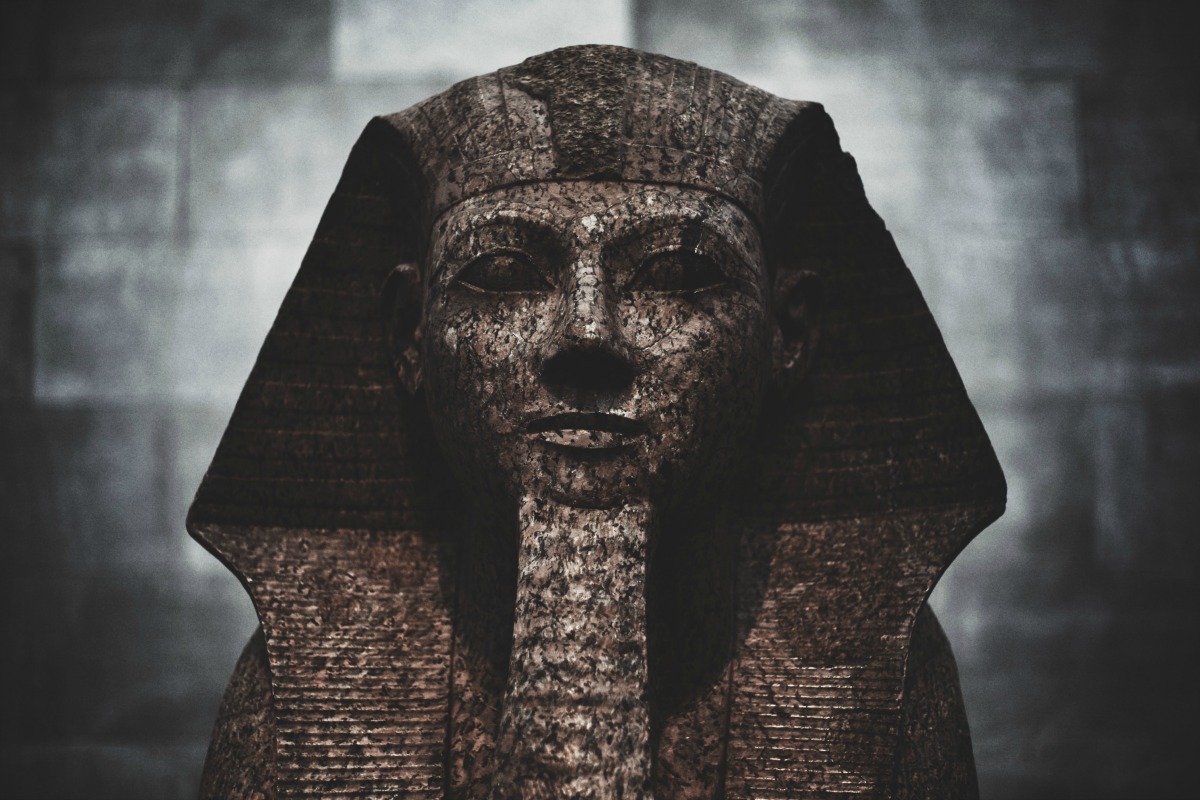 Cedarwood essential oil for hair is antimicrobial. The ancient Egyptians well knew this property.
Cedarwood essential oil for hair is antimicrobial. The ancient Egyptians well knew this property.
Based on these findings, the research team concluded that essential oils offered an effective and safe treatment for alopecia areata. Researchers are not clear exactly how the essential oils produced improvements in AA patients. They believe it is likely that the cedarwood oil for hair, along with the rosemary, lavender, and thyme oils, increased blood flow to the scalp, which revitalized the hair production processes of the follicles.
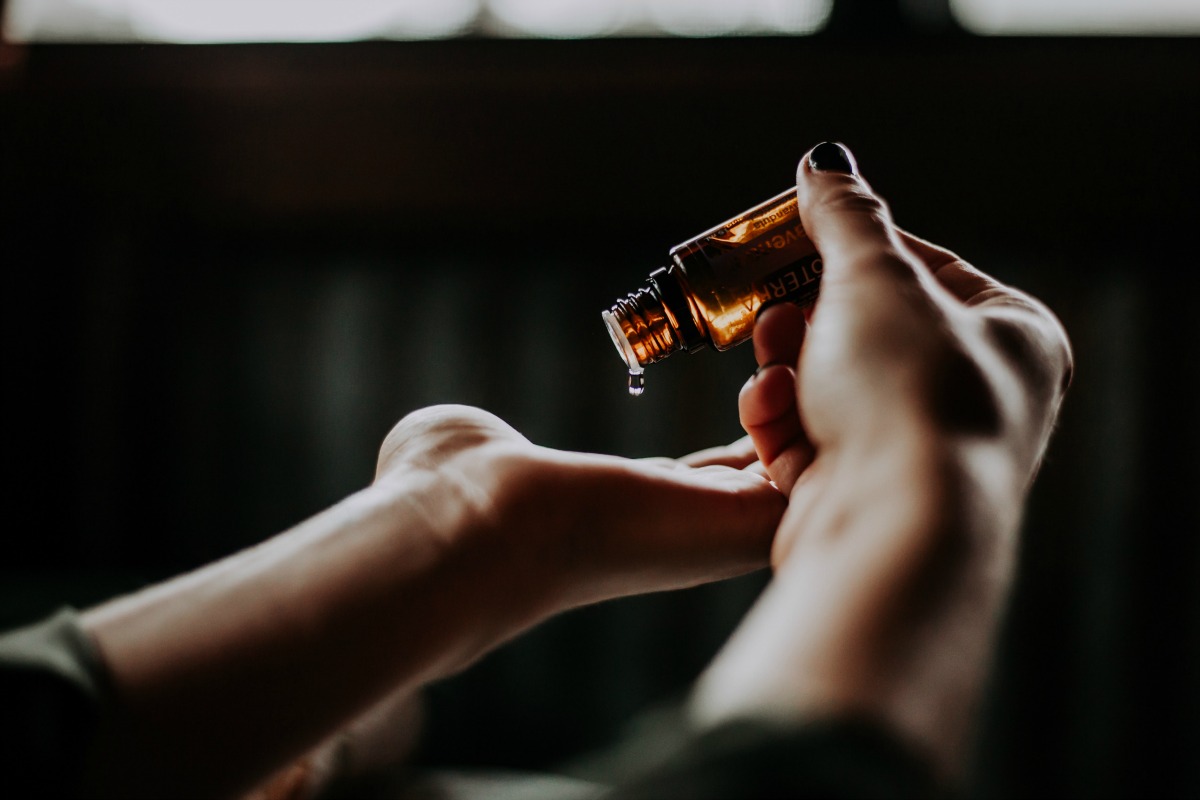 The effects of cedarwood oil for hair growth have been studied on alopecia areata patients by researchers.
The effects of cedarwood oil for hair growth have been studied on alopecia areata patients by researchers.
Important Constituents of Cedarwood Essential Oil for Hair
As discussed in the review "Indian Medicinal Plants Used in Hair Care Cosmetics," Cedarwood oil contains several important therapeutic compounds. In particular, researchers have been able to shed light on the benefits of sesquiterpenes and widdrol.

Sesquiterpenes in Cedarwood Oil for Hair
In a publication entitled Sesquiterpenoids Lactones: Benefits to Plants and People, the author discusses several areas of this cedarwood oil constituent (3). For the scalp and hair, these include anti-inflammatory and anti-microbial properties. Studies on the anti-inflammatory role of sesquiterpenoids attribute their effects to the modulation of certain cellular and biochemical processes, minimizing inflammatory responses.
- Sesquiterpenes from Essential Oils and Anti-Inflammatory Activity (4)
- Inflammatory Inhibitory Activity of Sesquiterpenoids from Atractylodes macrocephala Rhizomes (5)
- Anti-inflammatory sesquiterpenes and sesquiterpene dimers from Chloranthus fortunei (6)
Sesquiterpenes can also destroy bacteria and fungi by breaking down the cell walls of fungi and bacteria. Eliminating these organisms is another way for these compounds to prevent or alleviate inflammation, second to genetics as a prevalent hair loss cause. It can either worsen a genetic predisposition, causing hair thinning or shedding at a much faster rate. Or, it may serve as the exclusive cause of a person's hair loss condition. The anti-inflammatory capabilities of cedarwood for hair may help stave off these types of problems. Without bombardment of harmful chemical mediators from the body, follicles have a better chance of regaining their ability to regrow hair in certain instances.
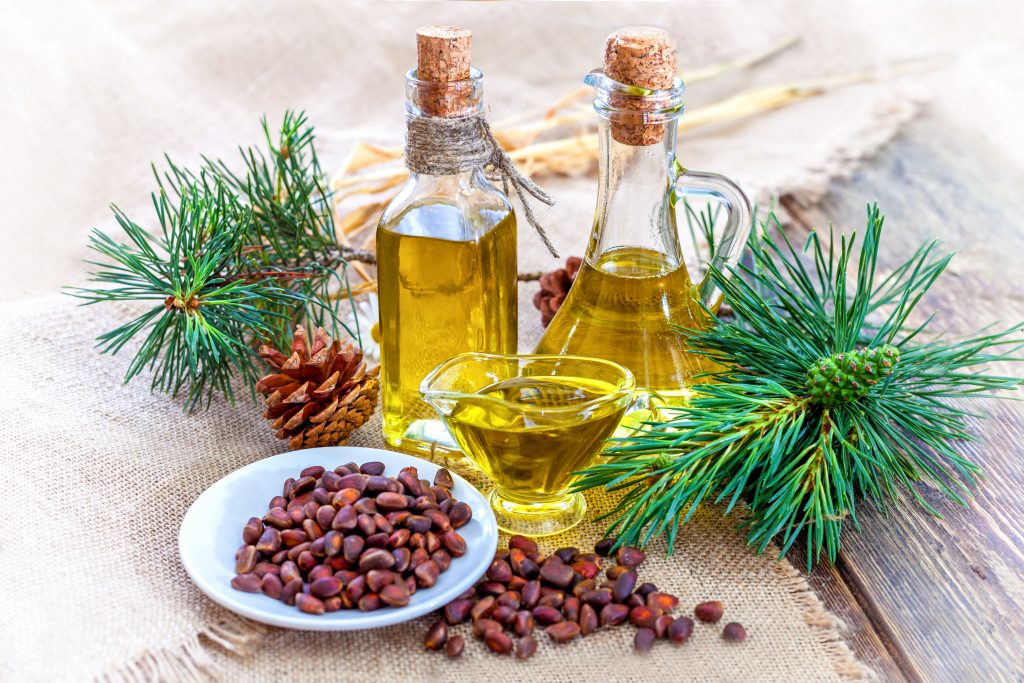
Widdrol's Antifungal Properties in Cedarwood Essential Oil for Hair
Widdrol is another important medicinal constituent found in cedarwood oil. One of its functions for plants is to help offer protection against fungal pathogens. In one study on widdrol, researchers observed its effects on fungi. They found that the compound could inhibit the proliferation of one of the fungal types tested (7) and then underwent a biotransformative process, following its suppression of the microbe. Fungal infections on the scalp can trigger inflammatory processes that may result in follicular damage and subsequent hair loss. The ability of cedarwood oil to destroy fungus makes it a valuable asset for natural hair products. Topical application of a natural botanical hair product with cedarwood oil may provide a more direct route to the scalp and hair follicles. Besides the inflammation issue, the antifungal properties of cedarwood serve as a chemical-free preservative to prolong the shelf life of hair and beauty products containing all-natural ingredients.

Cedarwood oil for hair loss has antifungal and antibacterial properties to prevent inflammatory damage to the follicles.
Natural Hair Products with Cedarwood
Using Cedarwood essential oil alone is not enough to experience the changes you would most want for your hair. This is why we at Dr.UGro Gashee created our unique hair formulations to include the right combination of botanical plant extracts. Each one has been supported by research to improve a specific hair follicle mechanism. We also made sure to get the processing right by avoiding the use of heat. As a result, our products preserve Nature's bioactive healing qualities so that you can truly benefit from them. The ingredients we use in our hair lotion and pomade work harmoniously together with our Deodor Cedar to enhance what it can offer your hair. Learn more by trying out our products for yourself. Click the green button below to shop for Dr.UGro Gashee today!
The Relaxation Effects of Cedarwood Oil for Hair
Many people believe that extreme stress can lead to hair loss. But how is it possible for this to occur? A scientific publication called "Stress and the Follicle, Exploring the Connections" explains that neurotransmitter pathways in the body can affect hair follicles during stressful experiences (8). Interestingly, the scent of essential oils like cedarwood may induce the opposite emotional state of relaxation and sedation. According to one study, cedrol inhalation's sedative effects and mechanism of cedrol inhalation with behavioral, pharmacological evaluation, the essence of cedarwood (which contains cedrol) may exert sedative effects when inhaled (9). Researchers tested Wistar rats treated with caffeine and exposed them to the scent of cedrol. They noted that the inhalation treatment-induced prolonged sleep and decreased motor activity, compared to control groups. The cedrol in cedarwood may be able to activate certain neurochemical pathways associated with sleep and relaxation.
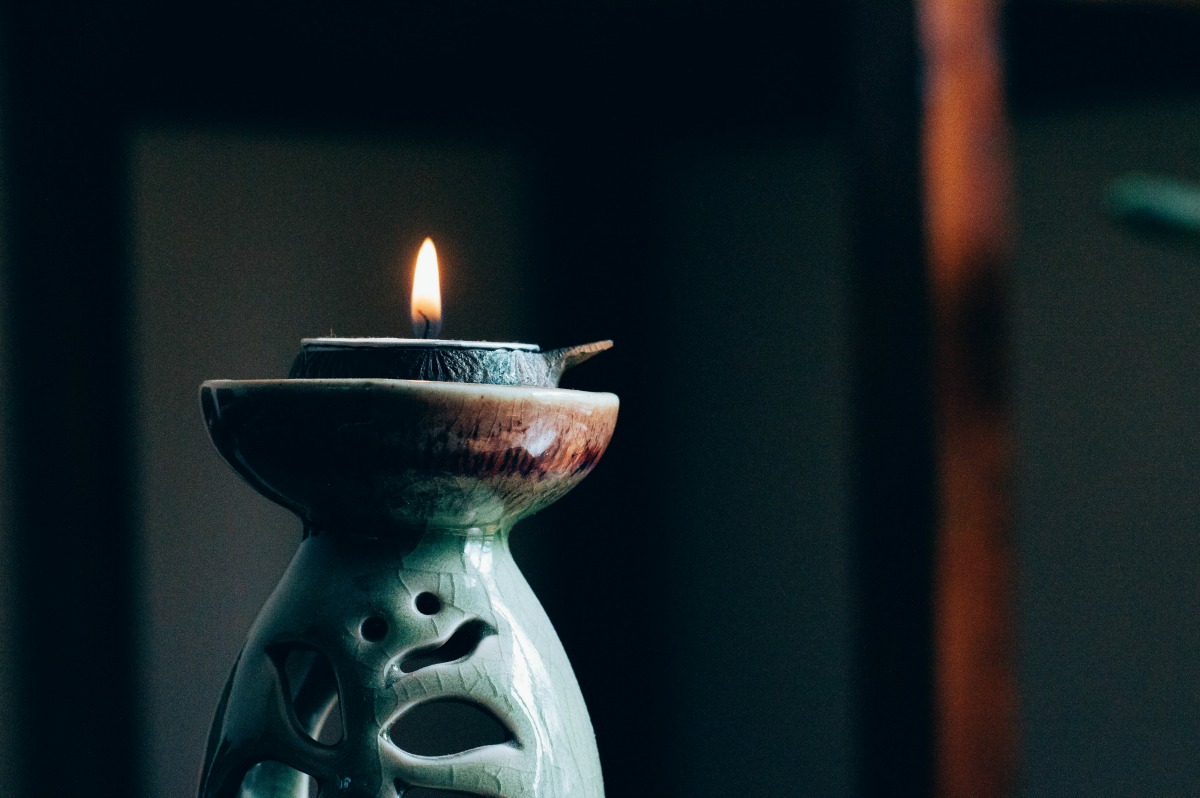
Should You Use Cedarwood Oil for Hair Loss Due to Stress?
Based on the cedrol sedation study, is it possible that cedarwood oil can help us overcome the anxiousness and worry that would lead to hair loss? Aromatherapy is considered a complementary and supportive form of treatment and should not be relied on as a cure for hair shedding, thinning, and baldness. Burning cedarwood oil may contribute to a temporary state of relaxation. But to really conquer the emotion of stress, it would be important to master coping and perceptual reframing skills instead.
Does Cedarwood Oil Cause Side Effects?
According to the Environmental Working Group, cedarwood oil is considered generally safe as a topical, food additive, or insecticide. However, it may be dangerous if ingested. Though it may cause skin allergies, reported known cases are rare. To avoid skin irritation, dilute the essential oil in a safe carrier oil (e.g., almond oil) and test on a small skin area before applying. Also, if you happen to be allergic to cedar, do not put cedarwood oil on your skin.
Try Out These DIY Uses of Cedarwood Oil
Due to its natural astringent (i.e., cleansing, pore-tightening, and drying) properties, cedarwood oil makes an excellent addition to your current face and body moisturizers.
Lotion Bar
If you happen to love the scent of cedarwood and enjoy making your own DIY beauty products add a few drops of cedarwood essential oil to a heated mixture of shea butter and cocoa butter. Let it cool in a jar or silicone mold to create an earthy, fragrant lotion bar.
Cedarwood Room Fragrance
Did you know that today's diffusers can create beautifully fragrant vapors that can fill the entire room without an overwhelming aroma? Examples include:
- electric
- heat
- nebulizing
- ultrasonic
You can use cedarwood oil alone if you are fond of earthy, woodsy aromas. Or, if you prefer, you can also experiment with creating new scents by adding other essential oils. Try lemongrass, ginger sage, thyme. Notice the overall effects and keep improvising. Cedarwood's wide range of therapeutic properties for our hair and health has long been known since antiquity. Today, the oil continues to be relevant to our lives, especially with the new and fascinating research findings that are now coming to light to support its effectiveness. If you are considering using cedarwood oil by itself or as a product ingredient, consider how it is processed. This matters for its effectiveness and whether or not it retains the plant compounds responsible for its healing and other desired qualities.

Medical Journal Unveils the Power of Gashee With Cedarwood Oil
Science journals may strike you as dull, dry, and boring reading material. And you may think their articles don't matter for your life. Perhaps they weren't a part of your college or graduate school years. However, they do hold more importance for your life than you realize. Scientific research and literature help us understand new truths about our world using objective-as-possible methods as members of humanity. At Dr.UGro Gashee, we leveraged the science behind hair follicle health and natural plant healing to formulate mind-blowing hair wellness and styling products that change lives. With consumers faced with so many claims and messaging, research articles can help us sort out objective truths from mere hype. In our published medical journal paper, entitled, A Multimodal Hair-Loss Treatment Strategy Using a New Topical Phytoactive Formulation: A Report of Five Cases, we discuss a bigger picture view of hair follicle dynamics. We also share the clinical effects of our Gashee hair lotion on 5 real-life people who used our all-natural botanical hair lotion to make enormous strides in the quality of their hair, thanks to our product. Read more about our report featured in Case Studies in Dermatological Medicine.
Why This Man Now Uses Gashee Lotion Every Morning To Moisturize His Dry Hair
Women are not the only ones interested in safer, moisturized hair. Men like Joshua Milrad also want the look and feel of healthy, youthful hair. He did not like how dry his hair was becoming. He also didn't want to use the same hair moisturizing products branded for women. After learning about our Dr.UGro Gashee hair lotion and the integrity-driven science behind how it works, Josh wanted to give our products a try. Whereas the excitement of many hair products usually wears off eventually, this man experienced gradual, continuous improvements day after day. As a result, he was more than happy to keep using it until it became an official part of his morning routine.
Frequently Ask Questions
How safe is cedarwood oil for hair products?
Though cedarwood oil is a natural, non-synthetic ingredient and generally safe, high concentrations can still be dangerous and toxic. A scientific publication called Dose-response assessment of the dermal toxicity of Virginia cedarwood oil reports that cedarwood oil has been shown to cause “excessive” skin lesions when dermally applied to rats for 13 weeks (10). Researchers studied different concentrations and identified those that were toxic and unsafe. These levels were found to coincide with safety/toxicity levels defined for humans in cosmetics and pesticides.
What are the different types of cedarwood essential oils for hair care and skincare ingredients?
Cedarwood oil is extracted from either Cedrus or Juniperus trees and is available in four types:
- Atlas Cedarwood oil (Cedrus atlantica)
- Himalayan Cedarwood oil (Cedrus deodara)
- Virginian Cedarwood oil (Juniperus Virginiana)
- Texan Cedarwood oil (Juniperus Mexicana)
Each one has slightly different medicinal compounds. For example, the Himalayan and Atlas types contain alpha-pinene and Himachal. The Juniperus cedarwood oils contain thujopsene and cedrol.
Besides the use of cedarwood oil for hair and scalp care, how else is it used?
Cedarwood oil has long been used in Ayurvedic medicine for different health applications such as skin issues, improving circulation, treating pain, arthritis, headaches, colds, and coughs. Modern researchers have also found that using cedarwood oil can also help improve children with ADHD.
References
- Amit Gupta et al., Indian Medicinal Plants Used in Hair Care Cosmetics, Pharmacognosy Journal, Volume 2, Issue 10, June 2010, Pages 361-36
- Hay IC, Jamieson M, Ormerod AD. Randomized Trial of Aromatherapy Successful Treatment for Alopecia Areata. Arch Dermatol.1998;134(11):1349–1352. doi:10.1001/archderm.134.11.134
- Chadwick M, Trewin H, Gawthrop F, Wagstaff C. Sesquiterpenoids Lactones: Benefits to Plants and People. International Journal of Molecular Sciences. 2013;14(6):12780-12805. doi:10.3390/ijms140612780.
- Da Silveira e Sá Rde C, Andrade LN, de Sousa DP, Sesquiterpenes from Essential Oils and Anti-Inflammatory Activity. Int J Mal Sci. 2013 Jun; 14(6): 12780–12805.
- Hoang le S, Tran MH, Lee JS, Inflammatory Inhibitory Activity of Sesquiterpenoids from Atractylodes macrocephala Rhizomes. Chem Pharm Bull (Tokyo). 2016;64(5):507-11. DOI: 10.1248/CPB.c15-00805.
- Zhang M, Wang JS, Oyama M, Anti-inflammatory sesquiterpenes and sesquiterpene dimers from Chloranthus fortunei. J Asian Nat Prod Res. 2012;14(7):708-12. DOI: 10.1080/10286020.2012.685724. Epub 2012 May 10.
- Nuñez YO, Salabarria IS, The antifungal activity of widdrol and its biotransformation by Colletotrichum gloeosporioides (penz.) Penz. & Sacc. And Botrytis cinerea, J Agric Food Chem. 2006 Oct 4;54(20):7517-21
- Vladimir A. Botchkarev, Stress and the Hair Follicle Exploring the Connections, Am J Pathol. 2003 Mar; 162(3): 709–712.DOI: 10.1016/S0002-9440(10)63866-7
- Kagawa D, Jokura H, Ochiai R, Tokimitsu I, Tsubone H. The sedative effects and mechanism of action of cedrol inhalation with behavioral, pharmacological evaluation. Planta Med. 2003 Jul;69(7):637-41.
- Natasha R.Catlin, Ron Herbert, Kyathanahalli Janardhan, Dose-response assessment of the dermal toxicity of Virginia cedarwood oil in F344/N rats and B6C3F1/N mice, Food and Chemical Toxicology, Volume 98, Part B, December 2016, Pages 159-168




